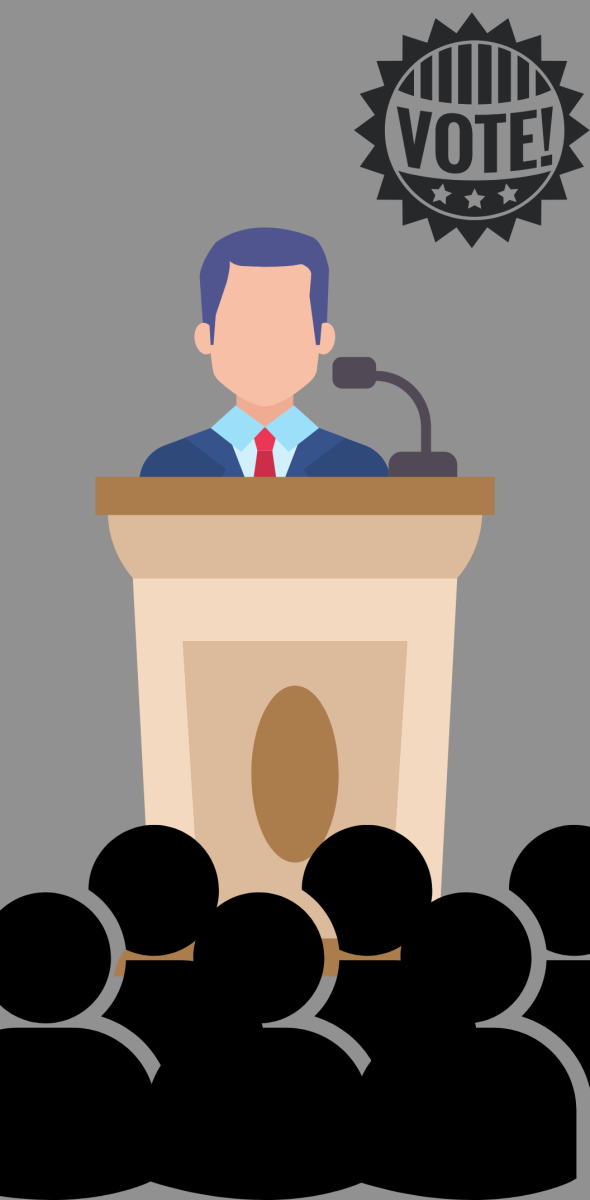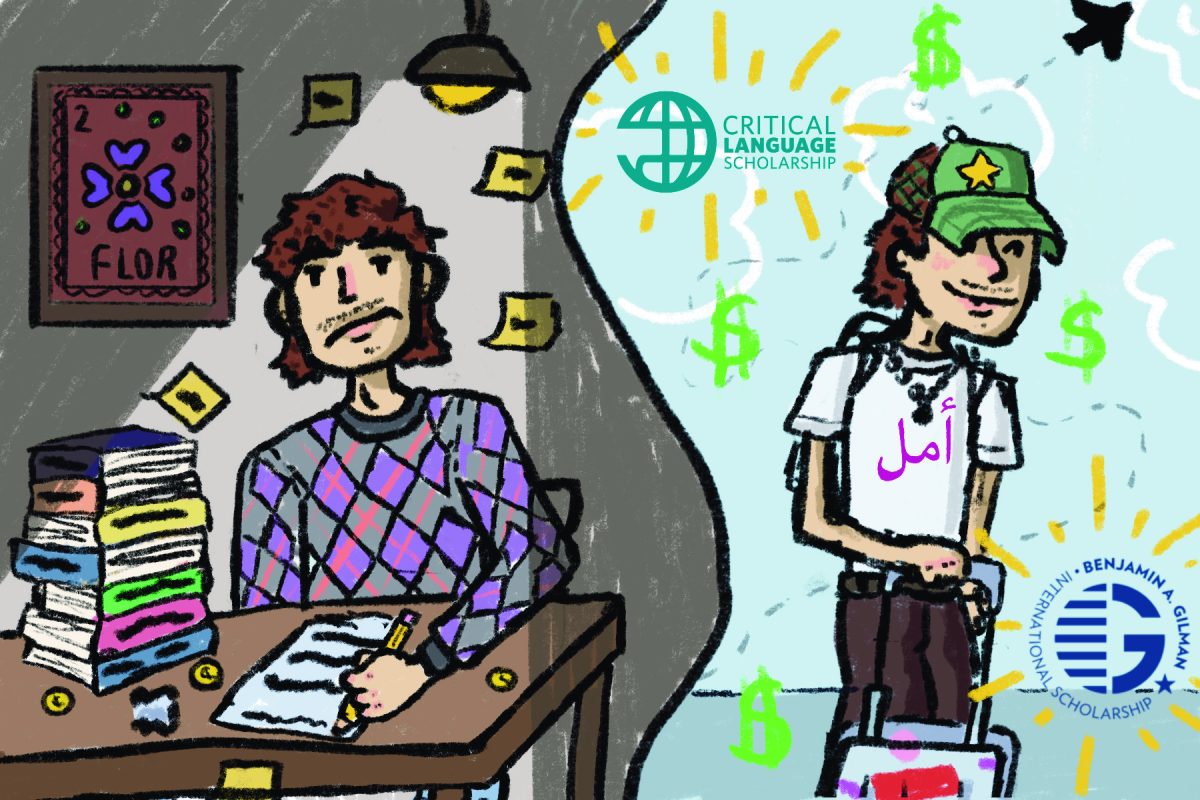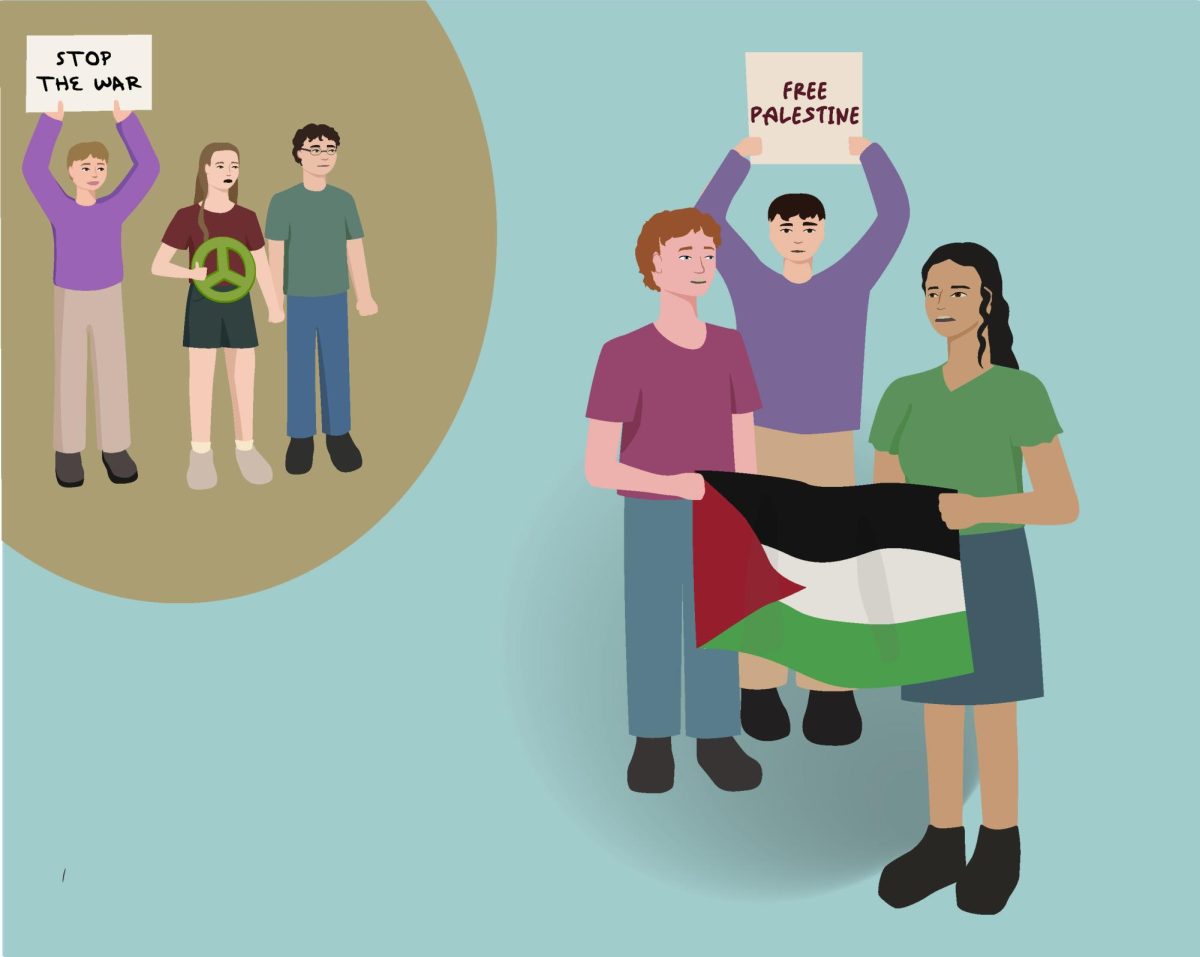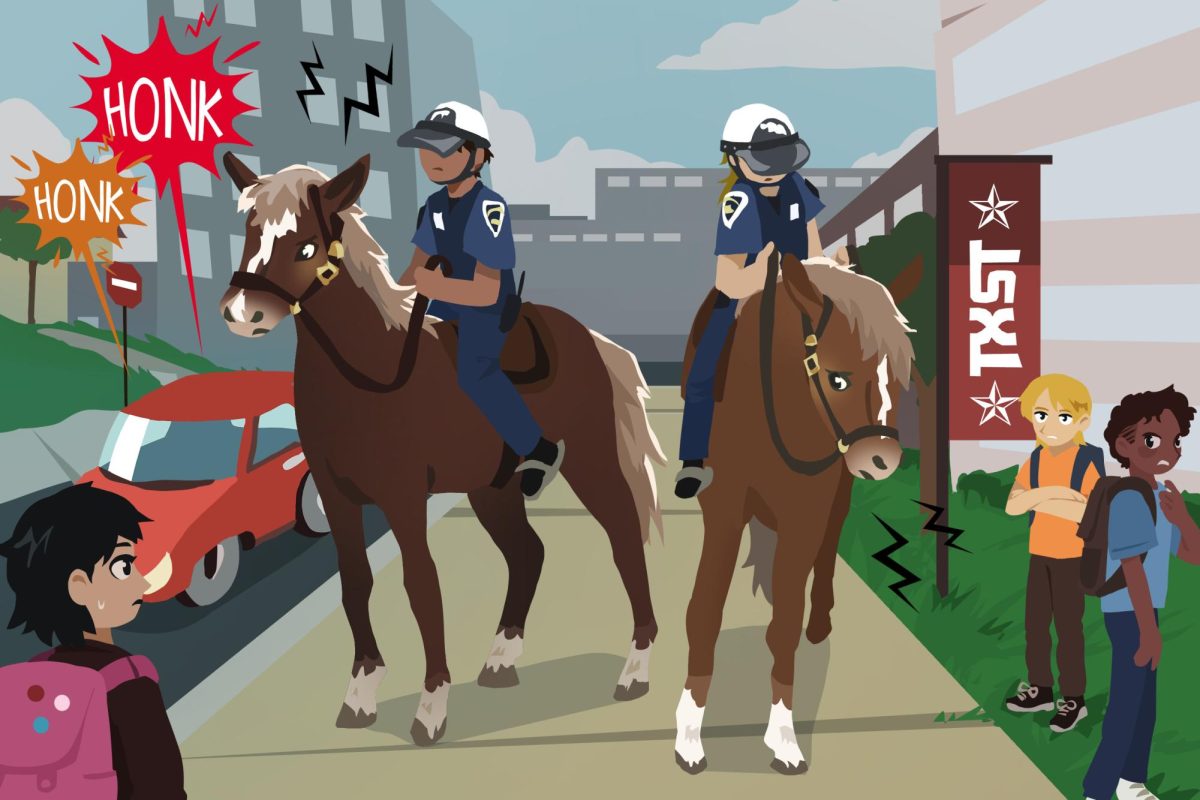On Oct. 5, Beto O’Rourke visited Texas State on his tour of college campuses across Texas. His visit attracted the attention of thousands of Texas State students, many of whom were unable to enter the rally at the Evans Liberal Arts auditorium due to space concerns.
O’Rourke has previously visited Texas State. He made a similar college tour during his run for Senate and visited Texas State in September of 2018, much to the excitement of the student body.
While politicians with limited budgets and less notoriety than O’Rourke may hesitate to take the time for college visits, they should prioritize visiting college campuses. At the same time, political tours can benefit politicians and students.
Politicians should visit college campuses because college students are a massive yet underserved voting bloc. According to University Stat, there were 1,628,057 people enrolled in Texas universities in the 2021-2022 academic year. Though there are many movements in Texas to change voting laws that would impede the ability of college students to vote, including banning 24-hour voting and distributing mail-in ballot applications, college students still have more power than they realize at the polls.
During the 2016 presidential election, the percentage point difference between Donald Trump and Hillary Clinton in Hays County was 1%. While college students have been turning out to the polls in increasing numbers over recent years, there are still steps that politicians and college students can take to help encourage more students to vote.
William Eugene-Onyejiaka, a civil engineering sophomore, believes in a politician’s rallying power. As the vice president of College Democrats at Texas State, he witnessed firsthand the impact of O’Rourke’s visit on students. As a result, he believes other students should be able to do the same, even if they disagree with the candidate.
“It’s important for us to understand who’s in office and what effect they’re going to have five, 10, 20 years down the road,” Eugene-Onyejiaka said.
Political rallies have long-ranging effects on attendees and policymakers observing said politicians. For example, according to a study of the Tea Party protests in 2009 hosted by the American Enterprise Institute, rallies with good weather and large attendances showed significant ripple effects on local politics. These effects included increased support for Tea Party positions and more Republican votes in the 2010 midterms.
Politicians visiting campuses provide opportunities for college students who are less politically inclined to begin to find their voice politically.
Live demonstrations of political movements often only talked about in theory in classrooms, such as rallies, can allow students to connect their classroom learning with real-world experience. A study on Cambrige.org shows that college students are more likely to register to vote and go to the polls when their classes provide in-class demonstrations of how to vote.
Like in-class voting demonstrations, college campus rallies are an excellent location for curious college students with little or no political experience to become involved with on-campus political organizations for their party of choice. At the O’Rourke event, voter registration deputies were in attendance, helping students become registered to vote in Hays County. Students also obtained Beto yard signs and spoke with other students about their political beliefs. They are also an excellent place for college students to make friends with similar passions and to ask questions of community leaders, peers and even politicians in attendance.
Eugene-Onyejiaka believes politicians should visit campuses even if the student body is not known for being politically active. It can allow students to ask questions and engage in discussions with said candidate.
“You are reaching the next generation. You have the opportunity to speak one-on-one with students that may not have formed opinions yet, that are just getting into understanding the world of politics,” Eugene-Onyejiaka said. “You have the opportunity to get with these students and share your vision for the future and how you’re going to better their lives, not only in this moment … but in the future.”
Detractors could make arguments that hosting politicians on campuses can cause security issues. When more divisive politicians come to visit, not only does it pose a risk to the politician, it may pose a threat to other college students, particularly in crowds or when debates between students become heated. However, with proper planning and coordination with the politician’s security team, the university police department and the city’s police department, a politician’s visit can be safe for everyone in attendance.
Politicians should take the time to visit college students because it has exponential benefits for politicians and students.
Early voting began on Oct. 24. To learn more about voter registration status or polling locations, visit VoteTexas.gov. If you are registered in San Marcos, you can vote at the LBJ Student Center room 3-21.3 during early voting and on Election Day.
-Tiara Allen is a marketing senior
The University Star welcomes Letters to the Editor from its readers. All submissions are reviewed and considered by the Editor-in-Chief and Opinion Editor for publication. Not all letters are guaranteed for publication.
Opinion: Politicians should visit colleges
October 27, 2022
Donate to The University Star
Your donation will support the student journalists of Texas State University. Your contribution will allow us to purchase equipment and cover our annual website hosting costs.

























